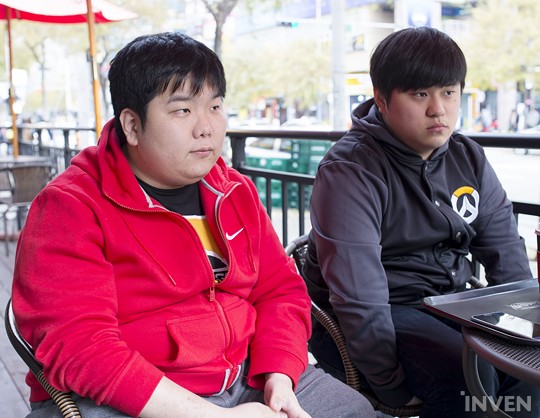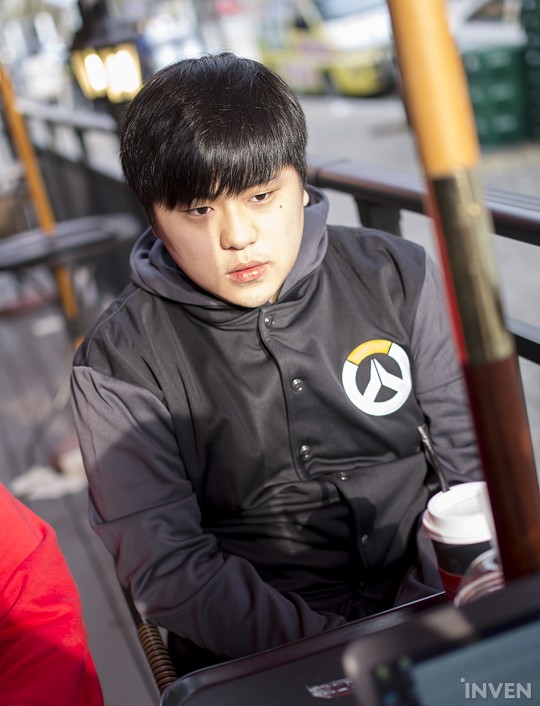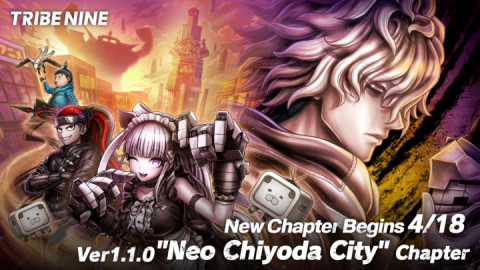Overwatch is still less than a year old as a competitive eSport; its pioneers are still striving to both establish the game and make a name for themselves. As the scene evolves, so do the teams and players, many of which are newcomers to professional gaming.
Among the trailblazers are TaiRong and ArHaN, Overwatch World Cup 2016 champions and Afreeca Freecs cornerstones. We were able to hear about their past forays, present struggles, and thoughts on the game's competitive future.

Let's start off by introducing yourselves.
TaiRong: I am Taeyoung "TaiRong" Kim, Head Coach of Afreeca Freecs OW.
ArHaN: I am Wonhyeop "ArHaN" Jeong, Afreeca Freecs Blue's DPS.
First of all, congratulations on your Overwatch World Cup victory. Unfortunately, there was no prize money for that tournament. Were you disappointed?
TaiRong: I would say that I was, but we all knew beforehand, so it didn't matter that much. We did receive a participation fee. Above all else, however, I am happy we made Korea proud.
ArHaN: That is exactly how I feel.
Many of your fans believe Team Korea could crush all foreign teams without much effort. Is this true, or were there exceptions?
TaiRong: Team USA was particularly difficult to play against. Their weak showing was simply due to lack of practice; they could have pulled off a wide range of tactics, but didn't. According to Brandon "Seagull" Larned, USA hardly practiced together after they lost to Russia.
Canada was the toughest team in scrims. It was the first time I met Lane "Surefour" Roberts, and boy, was he good. His McCree felt like a Genji, continuously flanking to pick off our two supports out of the blue. A literal one man army if there ever was one.
ArHaN: My Genji flanks were shut down very hard by Surefour's McCree positioning and play.
How exactly did you coach Team Korea?
TaiRong: I didn't really come up with any strategies by myself. All of our players were skilled, intelligent, and had great game knowledge. We didn't really need secret strategies to win. Everyone was capable of shotcalling.
In terms of individual play, I tried really hard to not fall behind and become a liability. I did scout enemy teams and do a lot of analyst work, though; I even bought a laptop out of my own pocket to optimally prepare. I also helped my teammates out quite a bit in areas outside of the game.
Zunba and Miro said in our interview earlier that you did a great job socializing with everyone and bringing the team together. How did you lead the team?
TaiRong: Everyone was nice to each other from the very beginning. I think Zunba and Miro said that just because I was the only one who could speak a bit of English. We had some small incidents here and there because it was our first time in America, and I helped my teammates out whenever something happened. Ordering stuff at restaurants, shopping at malls, asking the hotel front desk when a teammate locked himself out - stuff like that.
I guess I also played a part in finding scrim partners. My Team Fortress 2 background came in very handy because many other players in the World Cup also came from TF2. I heard China had a hard time finding scrims because they failed to "connect" with other Western players.

You played Genji against Finland's triple tank - an unorthodox choice by meta standards. What should a team do for its Genji in this matchup?
ArHaN: I trust my Genji. Speaking generally, Reaper would be better against a team of three tanks, but I had faith in my teammates' ability to enable me.
Roadhog is the core hero in triple tank compositions - he provides the DPS that triple tank teams are prone to lack, and disrupts enemy team tempo with Chain Hook. If Genji can make Roadhog's life hell, the game becomes easy. Roadhog provides plenty of ultimate charge. Shut him down with Dragonblade.
When should you not pick Genji?
ArHaN: If there is a skilled Genji player on the enemy team, I go for the mirror showdown. I will admit there is some vanity involved in it, but there's also a psychological element. If I wreck the enemy Genji 1v1, the opponent will swap out and play something else much less confidently.
You should switch away from Genji when you think you're not doing enough to justify the pick. I always prioritize the team's victory over my own, so I do that as well.
Another Team Korea strategy that generated a lot of response was using Bastion on both attack and defense. Which situations or maps are ideal for Bastion?
ArHaN: I am unsure if certain maps are better for Bastion, but the enemy composition certainly matters. Bastion's viability depends heavily on the skill of the enemy Genji. In the World Cup, we decided to pick Bastion whenever we felt like the opponent did not have a good Genji. For example, in our matchup against Team Finland, we picked Bastion on Temple of Anubis.
TaiRong: Finland seemed to have picked Roadhog over Genji because their team played better around the former. That's when Bastion became a strong pick for us. He is strong against team compositions that can only initiate under certain circumstances. Bastion is a passive hero and is thus weak against those who can force open a crack at whim.
Lucio just saw his HPS decreased by 10%, and Nano Boost no longer increases move speed. Do you think there will be any notable changes to the meta when the PTR patch goes live?
TaiRong: I think we'll still use Lucio. He will continue to be a must-have unless Blizzard decides to do an entire overhaul. I talked a lot with other players at the World Cup about hero balance. Sebastien "AlphaCast" Ferez suggested that Lucio's buffs should fade based on proximity.
ArHaN: I think Ana received a reasonable nerf. It is now harder for her to pull her weight just by Nano Boosting a teammate every now and then. However, as long as she can coordinate well with her team's Lucio, she will remain very strong.I think Ana’s DPS should be decreased. She looks like a healer but is actually a DPS on the inside.
Team Korea really stood out in the World Cup, but in "club team" tournaments like Overwatch APAC or APEX, teams from the West have performed better. Many Korean fans point to Korean players' narrower hero pools as the reason. Do you agree?
TaiRong: Every team has their own weakness. Lunatic-Hai has a narrow hero pool, while we [Afreeca Freecs] lack the capacity to initiate fights with tanks when we have to. Our team also has a weak individual understanding of heroes, as shown in our previous matches.
Generally, teams from the West successfully utilize a wide range of DPS heroes and are capable of coming up with flexible team compositions suitable for different situations. I think that’s what really makes Rogue such a strong team.
Even when EnVyUs stormed tournaments around the world, I always thought Rogue was better because they were much more flexible. nV is also good at coping with different situations, but there are times when the team loses its teamwork and falls apart. Weak Winston play is a weak point for Rogue, but the team's versatility is more than enough to cover that up.

Your individual performance at the OWC was great. Were you tempted to return as a player?
TaiRong: No. I hurt many people back in TF2 due to my poor temper. How would they feel if they suddenly saw me on TV, enjoying the spotlight as a professional player? I would not be able to excuse myself for being so inconsiderate. That's why I became a coach instead.
Could you contrast Afreeca Freecs Blue to Team Korea?
TaiRong: Afreeca Freecs Blue heavily relies on ArHaN spearheading the team, while everyone on Team Korea was capable of shotcalling and carrying. Team Korea just couldn't lose.
What is your criteria for recruiting players? What is it that you value most?
TaiRong: I can quickly tell if a player has good game sense and is a good FPS player. It should be noted being a good FPS player does not necessarily translate to being a good Overwatch player. This is the fastest paced competitive FPS out on the market. Making correct decisions speedily is imperative.
What I value the most in a player is responsibility. Players can always improve as long as they feel responsible for their level of play. It is hard for an irresponsible player to make progress.
ArHaN: Derp. [laughs]
TaiRong: ArHaN here actually investigates tons of Genji POVs to continuously hone his skills. His drive to become the world's best Genji can also be said to be a sense of responsibility.
There are many skilled Genji players. Who do you think is the best?
ArHaN: I think they are all good, but not as good as me. [laughs] I personally looked forward to facing ShaDowBurn, and I could actually see that he had steady aim and good decisionmaking. However, I could tell at once that I was better than him.
Great Genjis are capable of changing the course of a game independently. Genjis that only look good with team support are not worthy of respect. In this regard I believe Hyojong "Haksal" Kim has some room to improve.
Utilizing map layouts to their fullest extent is very important. I spent about five hours on Dorado researching new flanking routes, figuring out where I could climb, then applied it to other maps. Then I went to Competitive and got used to them through trial and error.

How important is Competitve Play to pros?
TaiRong: When pros from foreign countries first came to Korea, most of them said, "Why would you play Competitive? You can gain so much more through scrims." I disagree. I think the core reason why Korean pros are so successful is because we play a lot of Competitive. Pros get a chance to meet a random selection of players through Competitive Play, and that makes them a lot more experienced because they encounter "random" situations which don’t happen as much in scrims. Competitive Play makes the player’s experience a lot richer.
Overwatch pros from overseas make perfect decisions in certain situations, but they lack the ability to deal with unexpected situations. Competitive Play helps you become a much more flexible player. I think the match between REUNITED and RunAway is the perfect example. Haksal's unorthodox way of using Genji threw REUNITED off entirely.
ArHaN: I understand why they say scrimming is better. For example, on NA server, the overall quality of Competitive Play is very low. In Korea, you wait ten minutes in queue and get placed with Master tier players. On the other hand, in NA, you get Diamond tier players, and some of them even have SRs lower than 4k. Those on the top are really good, but there are very few of them. I think that situation pushes pro teams toward scrims, whether they want it or not.
Does being a "first generation" Overwatch pro put pressure on you?
ArHaN: As an active player, I do feel a lot of pressure. Our team has dipped since our first short moment in the sun, and the decline brought a lot of stress. I do not care so much about the criticism, but I feel really frustrated when I am dissatisfied with my gameplay.
I am also afraid of newcomers. If you look at League of Legends, for example, a lot of skilled players are constantly replaced by skilled newcomers. This freaks me out - I don't know when I will be replaced. [laughs] When I look at "new" Genji players' POVs, I find that they are actually better than me in certain aspects. I am still learning a lot.
TaiRong: Forerunners need to keep pushing themselves. Latecomers catch up fast because they run on a paved road.
People say you are running high on momentum ever since the World Cup. Do you think your experience on the big stage helped?
ArHaN: Many people say that, but honestly, my playstyle remains the same as before. I gained confidence through the World Cup, but I was plenty confident before, too. Before I left, we were struggling to coordinate with each other, but we’ve solved that problem since. I think that's why people say we have improved.
TaiRong: For a while, the team had a hard time keeping up with ArHaN's Genji play. It resulted in a lot of criticism toward ArHaN, and he lost confidence. He thought he'd made the right plays, but results discourgaged him, so he began to lose faith in himself. I think the Overwatch World Cup gave him a great chance to regain his confidence - something very important to progamers.

You lost twice to Rogue in APAC and APEX. Why do you think you lost?
TaiRong: Our tanks were very low on confidence at APAC and failed to show what they had. Rogue's tank players are really good at pressing forward, and our tanks were not able to handle the pressure.
ArHaN: I did not feel as much pressure as the tanks. Honestly speaking, there were many times when I would come back to our team after cleaning up the enemy's DPS just to find that my teammates were all dead. [laughs]
I think I am better than Kevyn "TViQ" Lindström and Dylan "aKm" Bignet. I can tell whenever I scrim with them. In matches, I always try to dishearten the enemy DPS by "challenging" them to a 1v1 through a flank. I am really confident in 1v1s.
What's your opinion on Sombra?
TaiRong: She will definitely be an important pick. Her EMP is capable of opening fights from long range. Combined with her high mobility, it will allow her to initiate whenever she wants to. This is a huge advantage beyond imagination. Sombra can greatly influence the game just by herself. Even Winston and Genji's disruptive potential will be no match against Sombra. As André "iddqd" Dahlström said, Sombra will entirely overthrow the current competitive meta.
ArHaN: She's my style. Sombra has to attack enemies from behind, and I think that will produce a lot of 1v1 moments. I love 1v1s.
Why did LW Red and Afreeca Red fail to make it to APEX?
TaiRong: The qualifiers took place in Korean PC Bangs with 60hz monitors, and Genji is the strongest hero in a 60hz environment. Higher framerate leads to more precise aim. Shutting down a Genji is harder on 60hz, especially for players used to 144hz.
I told Afreeca Freecs Red to play Genji, but they didn't because they were not confident with him. We used Pharah a lot instead because we thought a hero with [a slower] projectile speed would be better in 60hz environment rather than hitscan heroes like Soldier: 76 and McCree. However, Genjis tore us apart and we lost.
ArHaN: The situation was better for amateurs because they normally play with 60hz monitors. I thought I was good with Pharah, but in the prelims my accuracy was almost halved. Genji kept taking us down, all of my shots were missing... it was very frustrating. Everyone went nuts.

Many people say Overwatch needs to improve its observer system if it wants to become a better eSport. Do you agree?
TaiRong: I think the observer system itself cannot be meaningfully improved further. Blizzard will try, but it will be hard for them to draw a positive response from nonplayers. Instead, I would suggest that they make statistical data appear constantly throughout the game. DPS graphs, weapon accuracy, kill participation... such data will greatly help the audience keep up with how the game is going. Also, it would be easier for everyone to tell who is doing well.
ArHaN: In DotA 2 and CS:GO, I can stick my camera to certain players I want to spectate. I would very much appreciate it if Overwatch adopted a similar system. Overwatch fans usually are more interested in individual players than teams. I personally lose interest when the camera switches to third person. I think the audience also would mainly want to see their favorites.
Any last words?
TaiRong: Thanks to Afreeca and Logitech for sponsoring us. I am still sorry to those people who had to suffer because of my immature ego back in the past.
ArHaN: I am really thankful to the fans and my family. I was satisfied with my performance in the World Cup, and I will ride that momentum all the way through APEX.
Sort by:
Comments :0






